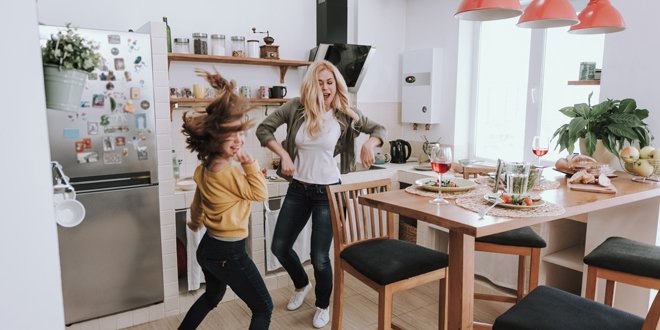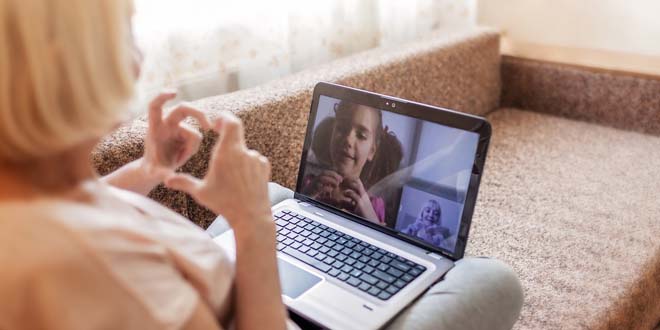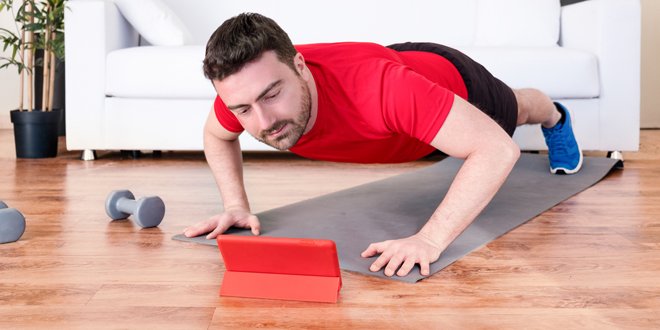
This article has been published with permission from Sharon Lowe, registered psychotherapist.
Much of the coverage of COVID-19 has been focused upon our physical health. But what about our psychological health? Times like these make those of us who are already anxious, even more anxious. We worry about our own health and the health of our loved ones as well as our job stability, food insecurity and the economy. It can be overwhelming.
Stay connected
We learnt lots of lessons from SARS which have been implemented in our hospital procedures. There are also important lessons from 911 and other events that teach us how to cope psychologically. Dr. Allison Holman from the University of California researched on how people coped after 911 and found that people who stayed connected and sought help coped better than people who isolated themselves. Stay home and stay away physically, but do not isolate emotionally. Stay in touch, reach out to loved ones near and far via text, telephone or video. 97% of language is in tone of voice, facial expression and body language, so video becomes the best way to connect emotionally.
Plan your day
Dr. Steven Taylor, the author of “The Psychology of Pandemics” says that we need to have some proactive plans in place and that we need to plan and to structure our day. So, use this time to be productive, clean out a closet, purge junk, get on top of your paperwork. It is also a good time to dream about the future. Talk about what you want to do after the virus, trips to take that were cancelled, things that were postponed and things you wished you had done.
We need to look to the future to feel more optimistic and this change in our ‘new normal’ may actually provide us with some opportunities like changes in careers or changes in the way we do business. Quiet time is also valuable as it gives us time to reflect, to think and to be creative. This is also a good time to remember that we don’t have complete control of our lives and we must be able to adapt. Being anxious and worrying about what is happening doesn’t change anything. Anxiety is like sitting in the driveway with the car in neutral and your foot flat on the gas. You use up all your gas and the car doesn’t change location.
Canadian Astronaut Chris Hatfield experienced extreme self-isolation in space and he offers these four tips:
(1) understand the actual risk by going to a credible source
(2) understand what are you trying to accomplish – who is telling you what to do?
(3) take action – start doing things and try do new things
(4) repeat the above 3 steps.
In times of stress we should always return to the basics which are sleep, exercise and healthy eating.
Keep active
The Canadian Society for Exercise Physiology recommends 150 minutes per week of exercise. According to the Mayo Clinic, “Research on depression, anxiety and exercise shows that the psychological and physical benefits of exercise can also help improve mood and reduce anxiety”. I am a strong proponent of exercise as the best anti-depressant that we have at the moment.
Yoga is such a great coping strategy as all you need is a mat and a small space. Yoga by Adriene is available on YouTube and it is free, she has 6 million followers. She has a number of classes for all levels of fitness and flexibility.
Establish routines
Routines give us a sense of stability and predictability. Children thrive with some predictability as it gives them a sense of safety. Go to bed at the same time, but don’t set an alarm as a bit more sleep right now is good for us. Stress is exhausting in addition to the anxiety already interfering with our sleep. In times of stress, the basics usually are the first to go.
Be mindful
Also consider Mindfulness Meditation. We have gathered so much data to validate that meditation is good for you. The essence of meditation is to sit still and listen to your breath. Anxiety makes us breath rapidly and slowing down the breath is calming. I suggest making the belly button the place that directs the breath, and don’t focus on inhalation, just exhalation. Our body is built to naturally inhale after exhaling. A panic attack is not our inability to breath, but our inability to exhale, so you have to breath out in order to breathe in.
Dr. Steven Taylor, the author of “The Psychology of Pandemics” says we need to watch out for any maladaptive ways of coping. These include drinking too much alcohol, binge watching TV, and shopping online. Alcohol interferes with sleep, so try and keep it to the CAMH recommendation of 9 drinks per week for women and 11 for men. Dr. Taylor goes on to say that the better we adapt, the better we will cope. People are reporting that they are craving comfort food and while in isolation are eating more than usual and eating more “junk” food.
Be compassionate to yourself
According to Dr. Rick Hanson, “Studies show that self-compassion buffers stress and increases resilience and self-worth.” Understanding who we are, naturally at this time, is helpful. The introverts are most likely going to find it easier to adapt during this quiet time; extraverts on the other hand are going to find it challenging. Those with low energy will have an easier time than those with high energy. So again, we need to adapt and to be creative in finding ways to fill our needs. In times of stress we need to have compassion for ourselves and others.
Find gratitude
Positive psychology research has shown that gratitude is directly correlated to happiness. Gratitude helps us to feel more positive emotions, whereas negativity makes us feel anxious and alone. Gratitude helps us to focus on what we do have rather than on what we don’t have. Limit how much time you spend reading, watching or listening to the media. If you use social media, set limits and try and follow the number of “good news” posts.
Show gratitude
There is also research to show that we benefit from giving. So, kindness is like karma, it bounces back at us. One of the things that I have become quite aware of during my local walks is that people are looking down, not making eye contact and not greeting one another. People who already feel lonely and isolated have these feelings exacerbated at times like these. Make a point of saying hello and thanking the cashiers at the grocery stores who put themselves at risk just by showing up at work. The frontline workers deserve our gratitude as they step forward while we step back.
Laugh and play
You know the old saying ‘laughter is good medicine’, well it actually is. Research shows that laughter improves our immune system. It also is an excellent way to deal with stress.
If you are home with your children, you have an opportunity to create lots of teachable moments. Play is a great way for children to learn. Let them invent games and let them figure out ways to play. Our children don’t get enough unstructured time so now is the time for them to use unstructured time to discover what they like to do. Children are naturally creative and given the time and space, they develop creativity and think outside the box, which teaches them problem-solving. Don’t entertain them all the time, and minimize screen time.
Being a huge proponent of routine, this may provide the time to develop a meal schedule, or a daily routine. Let the children help, or depending on their age, they can do it themselves. The more input they have into routine, the more buy-in they have.
CAMH has some really good suggestions on how to talk to your children about what is happening.
Final tips to manage this time:
- Connect with friends and family electronically
- Make plans for the future
- See the opportunities and adapt to this change
- Go for walk, especially in nature
- Workout or yoga at home
- Keep to a routine
- Keep your circadian rhythm
- Be grateful and focus on the good
- Limit time spent on media, social media and news
- Try something new, or do something that you never have time to do
- Be creative and let children be creative
- Watch out for maladaptive patterns
- Listen to music or sing, even if you can’t sing
- Go for a drive
- Be productive
Sharon Lowe is a registered psychotherapist with almost 30 years of experience, so she has worked through a number of critical events. She has a private practice in Oakville, Ontario and has a Masters degree in Education, which is why she is so fascinated by how people learn, adapt and grow in a crisis. She can be reached via her website www.sharonlowe.com.





